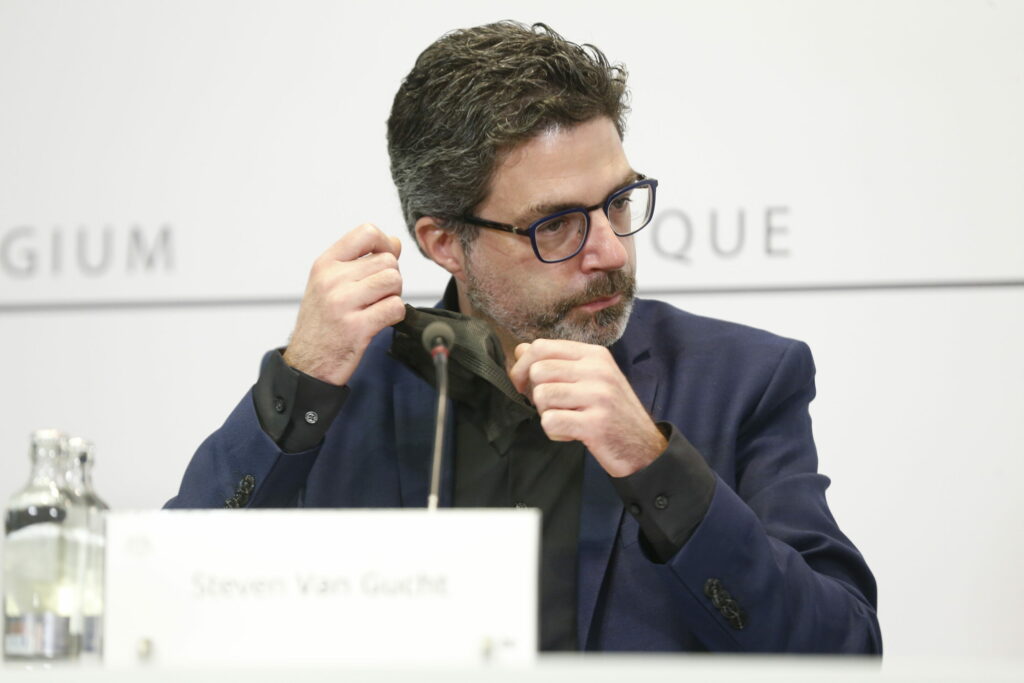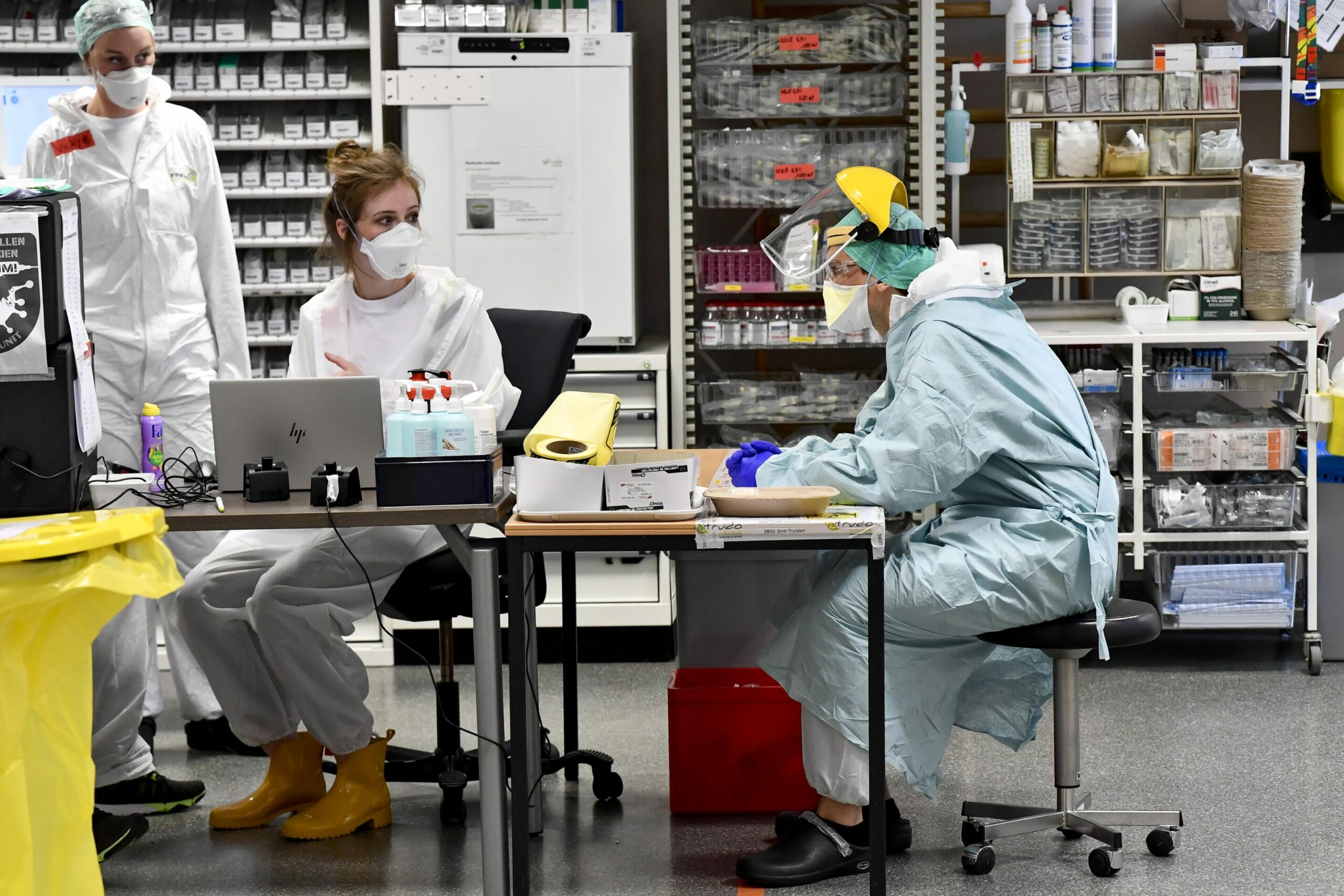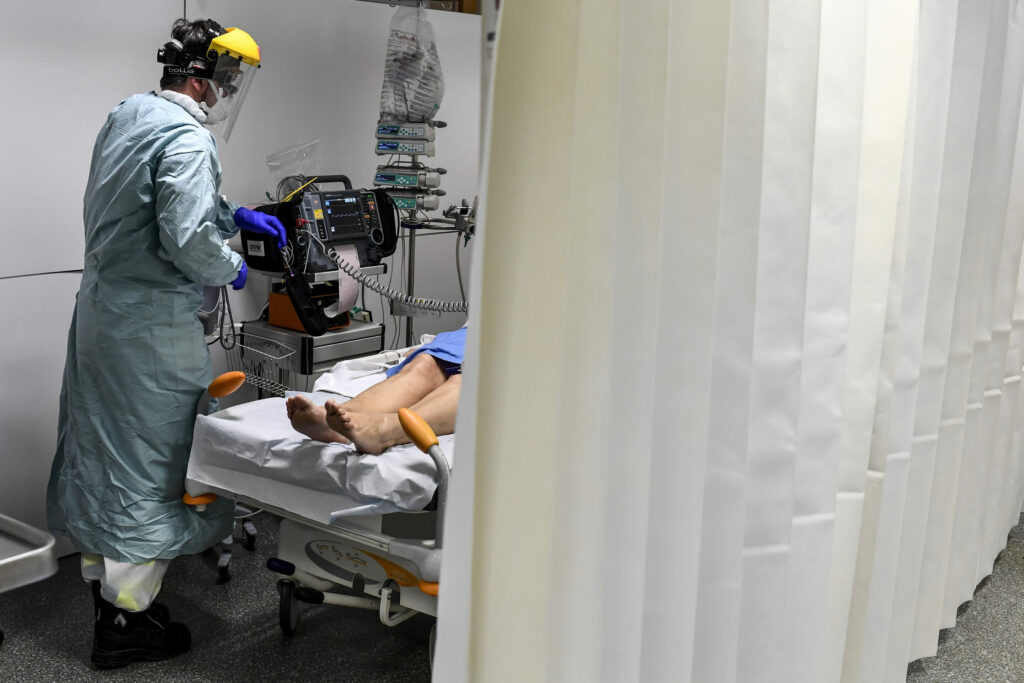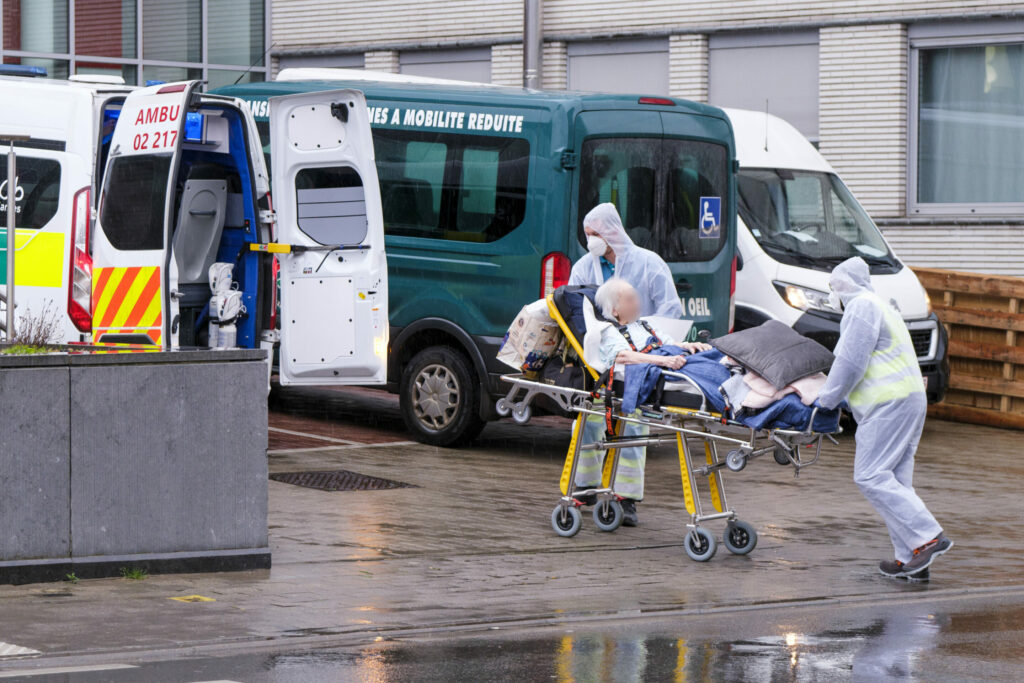Five years since Belgium suddenly – and unsuccessfully – announced strict health measures to stop the spread of the Covid-19 virus for the first time, the country today is better prepared in case of a new health crisis.
The pandemic resulted in 34,339 confirmed Covid-related deaths in Belgium, many of which could have been prevented if the authorities – not just in the country, but across the world – had been better prepared, according to one of Belgium's top virologists, Steven Van Gucht.
"We will never be completely ready. If we get a new pandemic next year, we should not pretend that we can just manage it away. We certainly should not create that illusion. It is still a kind of natural disaster," he told The Brussels Times.

Chair of the scientific committee on Covid-19, Steven Van Gucht pictured at a press conference. Credit: Belga/Nicolas Maeterlinck
In 2020, Van Gucht became one of Belgium's leading authorities to guide the country through the crisis in official press conferences, speaking in his capacity as inter-federal Covid-19 spokesperson. He was well-liked by the Belgian public for his clear explanations and no-nonsense approach to tough situations, but he always made a point of trying to end on a positive note.
"No one was prepared for something of this scale. We cannot blame anyone for that, but it would be a shame if we had not learned anything from that period," he said. "We have to take into account that things will go wrong again. We cannot control everything, but we are obliged to be better prepared. And I think to some extent we are."
On the one hand, the Belgian health system has evolved after and because of Covid-19. On the other, several parliamentary committees have turned the country's response inside out and made recommendations for the future.
"We have had an assessment from the OECD and from the European CDC. All kinds of recommendations have come out of that and they are being taken into account to the extent possible," Van Gucht said. "I would dare say that we are much better prepared now."
Generic preparedness
Monitoring systems have improved: wastewater monitoring, for example, was introduced during Covid and is still happening every week in more than 30 wastewater stations in the country. "We are not only looking for Covid, but also for the flu and other viruses. But we are also monitoring polio, for example."
Importantly, Van Gucht stressed that the government has been working on better plans for a long time. "This is a living document that we continue to work on. It is a 'generic preparedness plan', and I think that it is a good choice. It is not just about being prepared to deal with a specific virus or a flu plan, for example."
As it concerns a generic plan, it can be applied to any health crisis. "That is exactly what we missed with the pandemic: a good management plan," he said. Belgium had been through a state reform just a few years before, with certain powers and competencies changing from the regional to the federal level, or the other way around.
"Everyone was always looking at each other, wondering who should take the lead. The governance plan was not tight, and that is something that has been thought about much better now," Van Gucht said.

Illustration picture shows nursing staff wearing protections pictured in action in the Emergency services of the Sint-Trudo hospital in Sint-Truiden, Friday 17 April 2020. Credit: Belga/Dirk Waem
Belgium also implemented its pandemic law, which provides a framework for who will make the decisions in case of a new pandemic threat. The law states that the Health Minister and other ministers can declare a health crisis, but Parliament has to ratify it two weeks later.
"These are things that did not really exist before," he said. "There is a law on indoor air quality now, which was voted in response to the Covid-19 pandemic. However, there is still a lot of work."
Additionally, Belgium created national stocks, for example of face masks, but also of certain medicines. "That is a continuous process. The authorities are constantly considering what should be in there, what should not be in there, or how much."
Preparing for the crisis of the past
At the European level, a variety of things have been created and improved: the European agency HERA (Health Emergency Response Agency) has been created to respond to a health crisis, the ECDC have been given a stronger mandate and more resources. European surveillance has also been strengthened.
"Another important lesson from the pandemic is improving the lack of international coordination. That can be about data, surveillance, but that also measures that concerned travel, for example," he said. "It is important to agree on the basics with other countries, specifically your neighbouring countries. I think that Europe also has a much better mandate there now."
However, Van Gucht stressed that we should be mindful of not "preparing for the crisis of the past." In other words: should the next pandemic hit, it might be completely different from Covid-19.

Credit: Belga/Dirk Waem
"It is perfectly possible that a new health crisis will be completely different. Maybe young people will be hit very hard, while elderly people are more resistant," he said. This was previously the case with the Mexican flu in 2009, when many elderly people still had immunity from when they were infected with a similar virus as children while young people became very sick.
"Every virus comes with its own challenges and vulnerabilities," Van Gucht said. "Therefore, you have to prepare generically. You cannot control or manage everything. You cannot even solve everything. But you must do what you can. And that is what we are doing."

